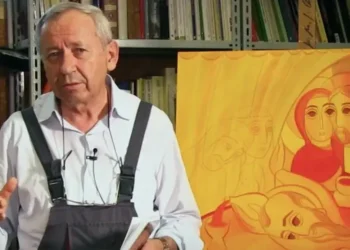Xander West is an independent writer and author of the Grumbling Times substack.
In this short series, Xander is exploring the Conservative Party’s long and tortured relationship with protectionism. Read part one here.
After the brutal landslide defeat of January 1906, caused largely by Joseph Chamberlain’s protectionist crusade tearing the Unionist coalition apart, readers might reasonably assume this marked the end of attempts to implement tariff reform. Unfortunately, as has occurred several times over the history of the Conservative Party, there emerged a certain reluctance to learn from mistakes.
Instead of realising the economic interests of Britain’s dominions were already too differentiated to contrive a unified protectionist regime, or that the electorate was justly concerned that restricting foreign imports with tariffs would increase food prices, a generation of Conservative leaders and policymakers repeatedly foundered over the same issues of trade. It remains a minor miracle that the Conservative Party survived this period of its history in any recognisable form.
Since Conservative leader Arthur Balfour had lost his seat at the election, Chamberlain briefly took the reins as Leader of the Opposition and had an opening to seize the final party organisation within the Unionists hostile to his tariff reform faction, namely the leadership within Conservative Central Office. His Tariff Reform League, which had zealously purged most pro-free trade Unionist Members of Parliament, was bolstered by Radicals who wanted the Conservatives to become single-issue protectionists, as well as Unionists who just sought to oust the dominant Cecil family from Central Office.
In the event, through meetings and letters between the two men and their closest associates, it was Chamberlain who lost in the ‘Valentine letters’ that were published in national newspapers on 14th February 1906. Although Balfour was made to concede that “fiscal reform,” as he termed it, was the chief priority of the Unionists, Chamberlain failed to make protectionism official party policy, forcibly expel the remaining free traders or secure party reforms to increase his control at the Cecils’ expense.
Balfour returned to Parliament through a by-election in late February with his authority renewed. Chamberlain, having only briefly entertained a permanent split through creating a ‘Tariff Reform Party’, quickly yielded parliamentary control over the Unionists. Although he grew unsatisfied about the lack of party reorganisation and wanted to orchestrate another confrontation with Central Office, a stroke in July 1906 finally ended Chamberlain’s crusade.
His son and former Chancellor Austen Chamberlain took up the mantle of tariff reform, whilst the League’s fanaticism against Unionist free traders continued undiminished. Meanwhile, the health of the free trade faction’s leader, Spencer Cavendish, 8th Duke of Devonshire, collapsed in late 1907, with his parliamentary group in a similarly poor condition. Without the benefit of hindsight, they considered the ‘Valentine letters’ a capitulation from Balfour to the corruption or outright destruction of conservatism that the Chamberlains represented.
Yet Balfour held on, his narrow victory over the tariff reform faction and control of the House of Lords enough to keep him in the leadership until the latter ignited politics with their veto of the Liberal government’s People’s Budget in November 1909. At the ensuing election in January 1910, perhaps from a lack of any other alternative policy to the budget, he proposed roughly the full tariff reform programme with some characteristic vacillation.
The result was a hung parliament, a significant improvement on 1906 that encouraged the League but convinced Balfour of the need for more moderation, his preferred approach that remained alien to the Edwardian protectionists’ vocabulary. This manifested in November as a pledge to submit the full tariff reform programme, especially import duties on food, to a referendum with an almost intentionally uncertain chance of victory.
It was an extremely novel approach for the time and equally ironic, as the Unionists headed into the second election of the year in December defending the Lords’ veto and the constitutional status quo. The result was another hung parliament, with almost identical results. Although only one Unionist MP – Hugh Cecil, Balfour’s cousion – remained explicitly in favour of free trade after the League’s purges, anxiety and disillusionment had set in as others finally realised the unpopularity of their ideological cul-de-sac with the electorate.
Balfour, either from the League’s machinations or his own exhaustion, resigned as Conservative leader in November 1911. The frontrunners to replace him were Chamberlain for the protectionists, although still part of his father’s Liberal Unionist Party, and Walter Long, who disliked the former as a matter of course and gained his reputation as a hardline Irish Unionist. In almost classic Conservative fashion, both withdrew before any real contest could occur and Andrew Bonar Law was crowned as a compromise candidate.
Under Law, party unity was finally reasserted, unlike Balfour’s occasional papering over the chasms, which included changes to the party machine in response to three election defeats and the merger of the two Unionist parties in 1912. On trade, despite sometimes being associated with the extremes of the tariff reform faction prior to his leadership, he assumed a Balfour-like indecision for fear of re-splitting the party.
At the end of 1912, he finally began a public retreat from tariff reform, first by revoking Balfour’s referendum pledge in November, then announcing in December that food duties would only be introduced at the collective request of the Dominions. Finally, in January 1913 in a document known as the ‘Bonar Law memorial’, he committed to only raise the idea of import taxes on food after two successive election victories, in the process abandoning it and much of the accompanying impetus for tariff reform as party policy.
Most Conservative MPs signed to affirm their support for his leadership and policies whilst the League, deprived of political oxygen by the re-emergence of the febrile Irish Home Rule debate, at last hit the limits of its agitation. The League effectively blamed the party and the politicians they had installed for its own failure to prove the persistently questionable merits of tariff reform to the electorate. It entered a sharp decline and disbanded a few years later. Chamberlain quickly abandoned his own attempt to force Law to readopt the policy and the promise of a referendum on the complete agenda.
Lessons learnt, then? Not quite. During the First World War, the Conservatives entered a coalition under the Liberal Prime Minister and fervent free trader David Lloyd George. After the war’s end, the coalition continued as the Conservatives benefitted from Lloyd George’s immense personal popularity. When Law resigned as Conservative leader in 1921 due to ill health in favour of Chamberlain, he was relatively powerless to seek tariff reform and had to instead contend with increasingly restless backbenchers.
This culminated in the famous Carlton Club meeting of 19th October 1922, where Conservative MPs led by Stanley Baldwin voted against the continuation of the coalition. Chamberlain was forced out, as was Lloyd George, leading to Law’s return as party leader and now Prime Minister. He then won the general election called shortly after with a promise to not introduce tariff reform. He resigned in May 1923, this time with terminal cancer, being succeeded by the similarly moderate Baldwin.
He called an election specifically to introduce protectionism in December, thinking it would unite the party and better split his opponents’ vote, but failed on both counts and lost power to a minority Labour government. He abandoned the policy and upon the collapse of Ramsay Macdonald’s government won a landslide in the subsequent election of October 1924.
A new Cabinet consensus was formed between the free traders, led by the returning Winston Churchill and having regained some strength in the League’s absence, and the protectionists still aligned to Chamberlain. At the 1929 election, under the slogan ‘Safety First’ and with tariff reform nestled in a compromise approach of ‘safeguarding’, he tried again and lost power to another minority Labour government under Macdonald.
It took until the depths of the Great Depression, bringing an all-party National Government together in 1931 and the dominions together in common interest in 1932, for the protectionists to achieve their vaunted tariff reform. Introduced triumphantly in the House of Commons by Chamberlain’s half-brother and Chancellor Neville Chamberlain, there was to be a general tariff on imports, albeit with some exemptions for food and raw materials, accompanied by a unified system of preference towards the empire constituting mostly free trade. Five years later, when these agreements were due for renewal, economic interests had naturally diverged again, thus the policy that had riven the Conservatives for three decades and contributed to five election losses simply evaporated.
Already in 1931, the Statute of Westminster codified what had been true for years, that the Dominions were independent nations and unifying them as Joseph Chamberlain had once intended was always a fool’s errand. From its origins in imperial unity and imperial economic competition, tariff reform had become a supposed silver bullet for protecting agriculture, protecting industry, rejuvenating both, reducing unemployment, raising revenue for budget surpluses and funding social reforms or expanding welfare.
All this meant little before an electorate which rarely votes to inflict widespread taxes, direct or indirect, upon themselves when honestly asked. In reality, tariff reform was the radical ideological infestation of a demagogic dogmatist, perpetuated by his sons and League ilk turned politicians for a generation. It corrupted countless minds of otherwise reasonable Conservatives with attractive lies and shut out most propositions for a truly constructive policy programme to rival the Liberals or Labour.
These factional internecine obsessions concerned no fidelity to conservatism, instead to mindlessness, even to madness when considering their stubborn detachment and inflexibility in relation to the era’s genuine popular concerns. Every period of political oblivion suffered at the altar of this violent strain of protectionism was wholly deserved.






![Trump's Admin Guts Another ‘Rogue Government Agency with Zero Accountability’ [WATCH]](https://www.right2024.com/wp-content/uploads/2025/03/Trumps-Admin-Guts-Another-‘Rogue-Government-Agency-with-Zero-Accountability-350x250.jpg)
![‘We All Owe Him (Elon) a Huge Debt of Gratitude’ [WATCH]](https://www.right2024.com/wp-content/uploads/2025/03/‘We-All-Owe-Him-Elon-a-Huge-Debt-of-Gratitude-350x250.jpg)









